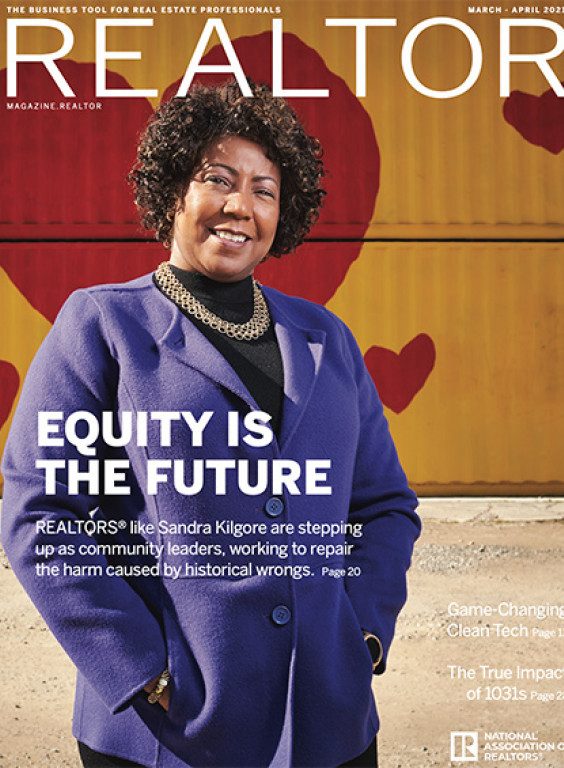Key Takeaways:
- Employers can require that employees (and most likely independent contractors) receive the COVID-19 vaccine before returning to offices.
- Employers may be required to make exceptions to a mandatory vaccination policy if an employee’s refusal is based on a disability or a sincerely held religious belief, practice, or observance.
- Employers can require all individuals who come to offices or attend in-person events to provide proof of vaccination.
Like many REALTORS®, Carol Bushberg is waiting patiently for COVID-19 vaccines to become widely available in her community. As broker-owner of Bushberg Real Estate in Ithaca, N.Y., Bushberg is also thinking about how her company should implement vaccination policies and procedures.
“After 34 years in business, this is a new situation for us,” says Bushberg, whose firm has four agents and six part-time employees. “We have been following state and county health department guidelines regarding COVID-19 precautions and will continue to do so in regard to vaccinations. We look forward to returning to our office.”
On a larger scale, Jeff Barnett, executive vice president and regional manager at Compass in Los Gatos, Calif., has also been following COVID-19 guidelines, including requiring visitors to register when coming into the office.
“There has been no talk in California about requiring vaccinations,” he says. “Our company will do what the state requires, but I don’t expect to force vaccinations on anyone.”
In anticipation of the wide distribution of COVID-19 vaccines, brokerages and REALTOR® associations should consider thinking about and crafting COVID-19 vaccination policies, says Lesley Muchow, deputy general counsel at the National Association of REALTORS®. “But employers still need to provide a healthy and safe environment for their employees, such as requiring masks and social distancing within the building,” she says.
Under guidance recently published by the U.S. Equal Employment Opportunity Commission, employers can require employees to obtain the COVID-19 vaccine and show proof of vaccination, such as a vaccination card, before coming on site, Muchow adds.
There are a myriad of factors that organizations should consider when deciding whether to implement a mandatory vaccination policy, including the availability of vaccinations, employees concerns regarding the vaccine, and the potential effect on employee morale.
“In any case, individuals’ concerns about the vaccines may weigh against a requirement that employees or agents get vaccinated,” Muchow says.” She adds that the Americans with Disabilities Act and other federal, state, and local laws also should be considered when developing and enforcing vaccination policies for the workforce. For instance, employers may need to make exceptions for employees with a disability or a religious belief that disallows vaccinations.
When creating either a voluntary or a mandatory vaccination policy, brokers should develop a communication program to educate employees and agents and explain the terms of the policy, adds Muchow. That would include practical issues such as whether employees will be excused from work to get the vaccine, as well as handling individual requests for accommodations.
Cindy Ariosa, senior vice president and regional manager at Long & Foster Real Estate Inc. in Lutherville, Md., says brokers should stay in close touch with their agents, as well as employees, when developing vaccination policies.
“You need to listen to them, as it’s a split camp right now,” she says. “Our company has 12,000 agents in seven states and the District of Columbia, which all have different COVID rules and regulations. It would be a challenge for a company of our size to have a mandatory vaccination policy. It might be easier for a smaller brokerage serving a local market.”
Interacting With Clients
Individual practitioners also need to consider their own approach to client interactions. They can continue to ask clients to complete a COVID-19 screening questionnaire, including asking whether they have been vaccinated, but should still adhere to safety precautions during interactions and showings, Muchow adds.
Finally, brokers should be sure that a mandatory vaccination policy is based on exposure risk. While EEOC guidance does not address independent contractors, if a policy is consistently applied based on exposure risk, real estate offices should be able to require independent contractors to provide proof of vaccination without fear of violating worker classification laws, says Muchow.
Because COVID-19 guidance will continue to evolve as vaccines become more widely available, brokers and agents should continue to look for the most up-to-date information and guidance from local, state, and federal health agencies.





